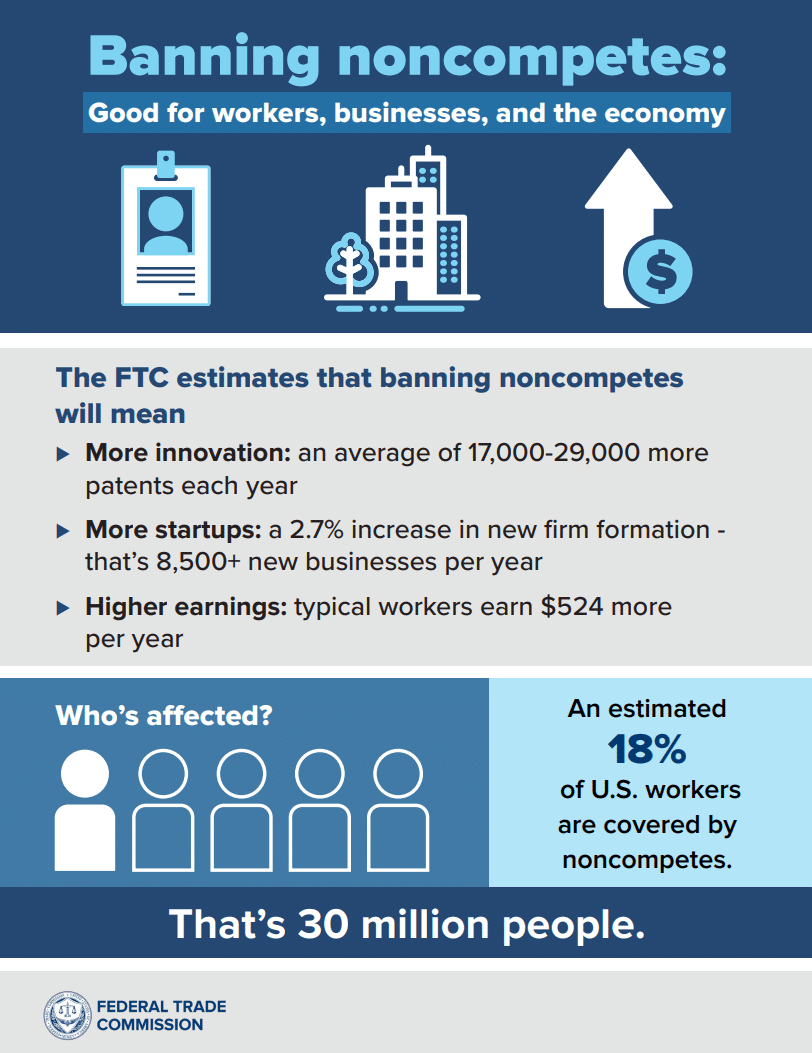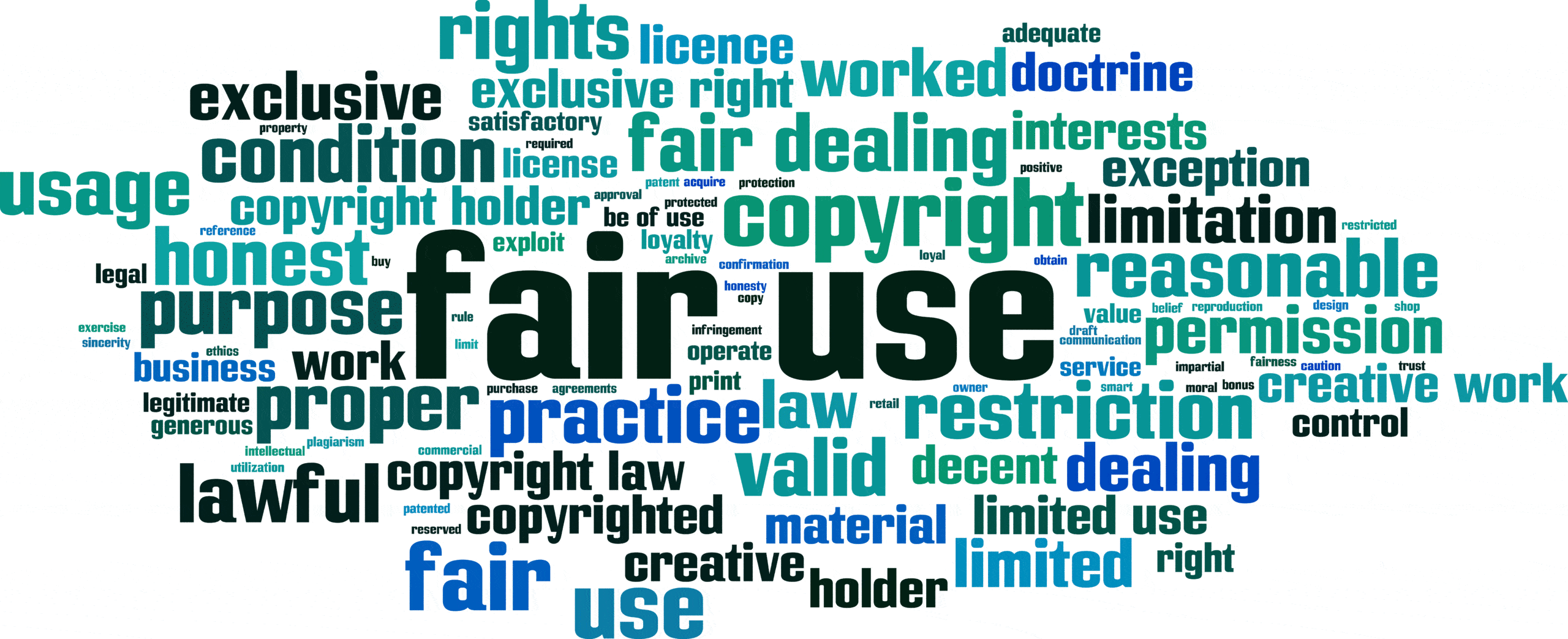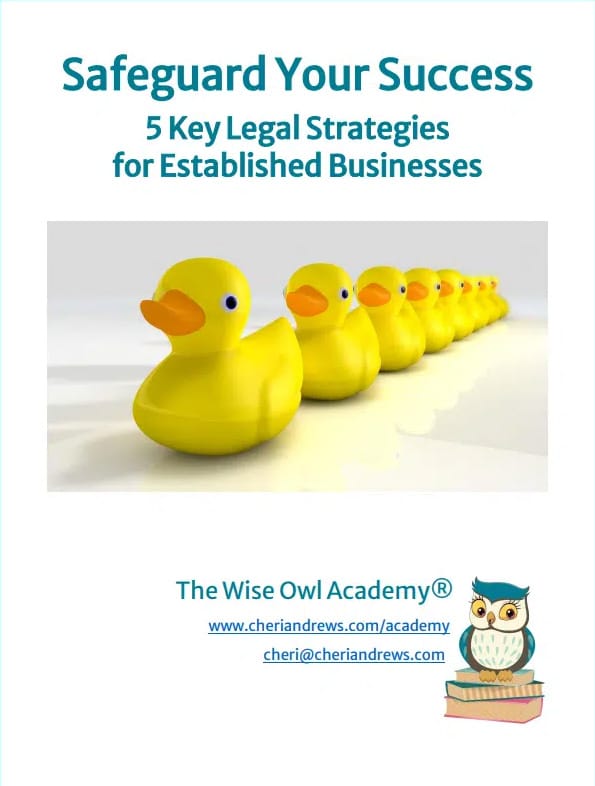On April 23, 2024, the Federal Trade Commission (FTC) issued a final ruling banning all noncompete agreements, with extremely limited exceptions. The FTC believes that noncompete provisions are anti-competitive. According to the FTC, the new rule protects “the fundamental freedom of workers to change jobs, increase innovation, and foster new business formation.” In fact, the FTC anticipates an increase of 8500 new start-ups annually once the ban is effective.
The FTC’s rule banning most non-compete agreements was published in the Federal Register on May 7, 2024. That means it is scheduled to become effective in September 2024.
What is the noncompete final rule?
The final rule bans all true noncompete clauses. A non-compete clause is any contract term or workplace policy “that prohibits a worker from, penalizes a worker for, or functions to prevent a worker from” either seeking or accepting work after the conclusion of employment, or operating a business after the conclusion of employment. The rule applies to all workers in the United States, including employees, independent contractors, interns, and volunteers.
While not clear, a term that “functions to prevent” a worker from competing could potentially include any overly broadly worded nondisclosure agreements, nonsolicitation agreements, and training repayment provisions. Whether it would fall under the ban depends on the language used in the provision along with the surrounding facts and circumstances.
But, in general, nondisclosure and nonsolicitation clauses are not banned under the final rule.
Who benefits from the noncompete ban?
All current and former workers are covered by the final rule. One exception is for senior executives who entered into noncompetes prior to the final ruling. These remain enforceable. But the final rule prohibits new non-compete clauses for senior executives after the effective date.
What are the exceptions to the noncompete ban?
The final rule expressly incorporates two limited exceptions. First, the noncompete ban does not apply to a non-compete clause included in an agreement for the “sale of a business entity, of the person’s ownership interest in a business entity, or of all or substantially all of a business entity’s operating assets.” Second, the ban does not apply to causes of action on a noncompete that accrued prior to the effective date of the rule. So if a cause of action accrues under a currently existing noncompete before the rule becomes effective, the noncompete may still be enforceable.
What happens next?
The final rule must overcome legal challenges which may delay the effective date or void the rule, so this isn’t set in stone just yet. Suits are already filed in both the Northern District of Texas and the Eastern District of Texas. The suit in the Eastern District seeks injunctive relief which, if granted, would delay any enforcement of the final rule.
What does this mean for you as an employer?
For now, the rule is not yet effective. But when the rule becomes effective, employers who have existing noncompete agreements must provide notice to workers that the noncompete provisions are unenforceable. The notice must be in writing delivered by hand, mail, email, or text message. The final rule contains model language for the notice that employers may use.
In the interim, draft any noncompete provisions as narrowly as possible to protect the employer’s legitimate business interest. Legitimate business interests include trade secrets, confidential and proprietary information, and customer goodwill. Ensure the restrictions are reasonable in terms of duration, geography, and scope of activities prohibited. Draft agreements so that any provisions found to be unenforceable can be severed, leaving other restrictions intact. Finally, don’t use noncompetes with lower-level workers absent legitimate reasons to do so.
Keep in mind that most courts do not favor noncompete provisions. If you can protect legitimate business interests through nondisclosure and nonsolicitation provisions, this may be the better alternative.










